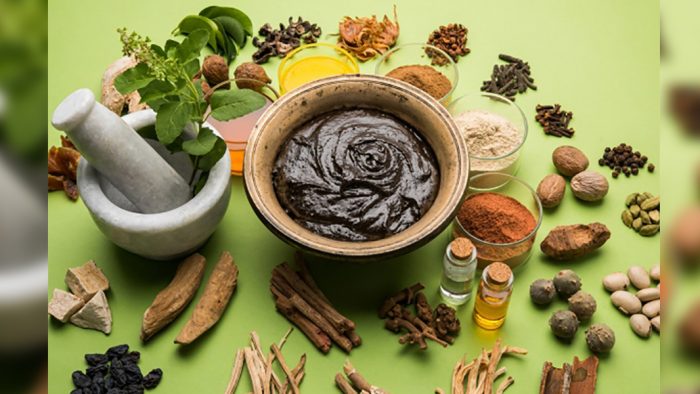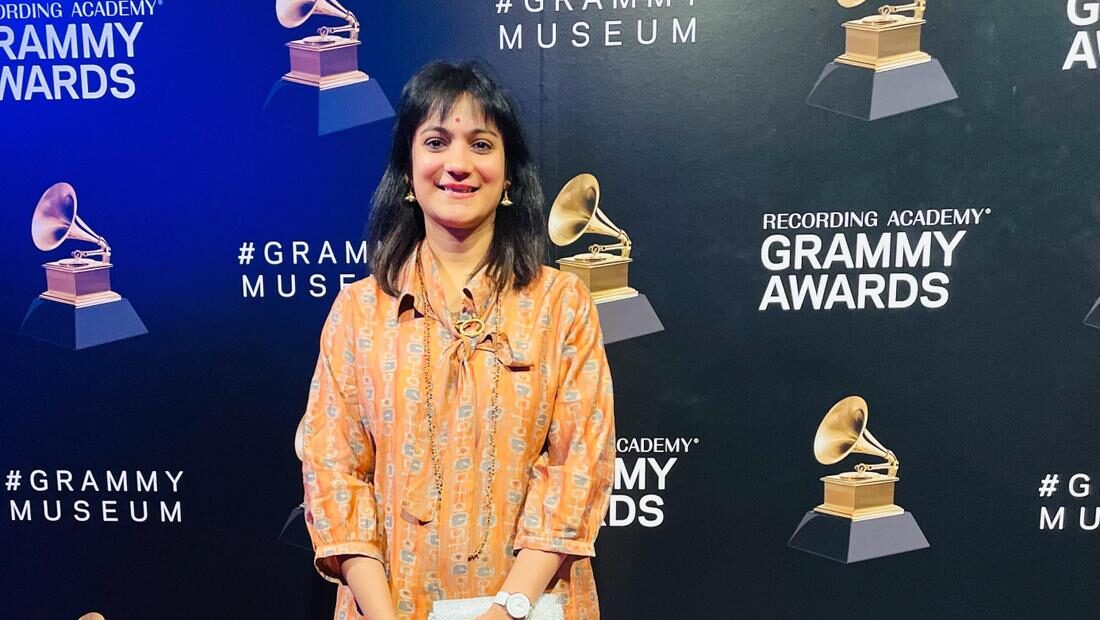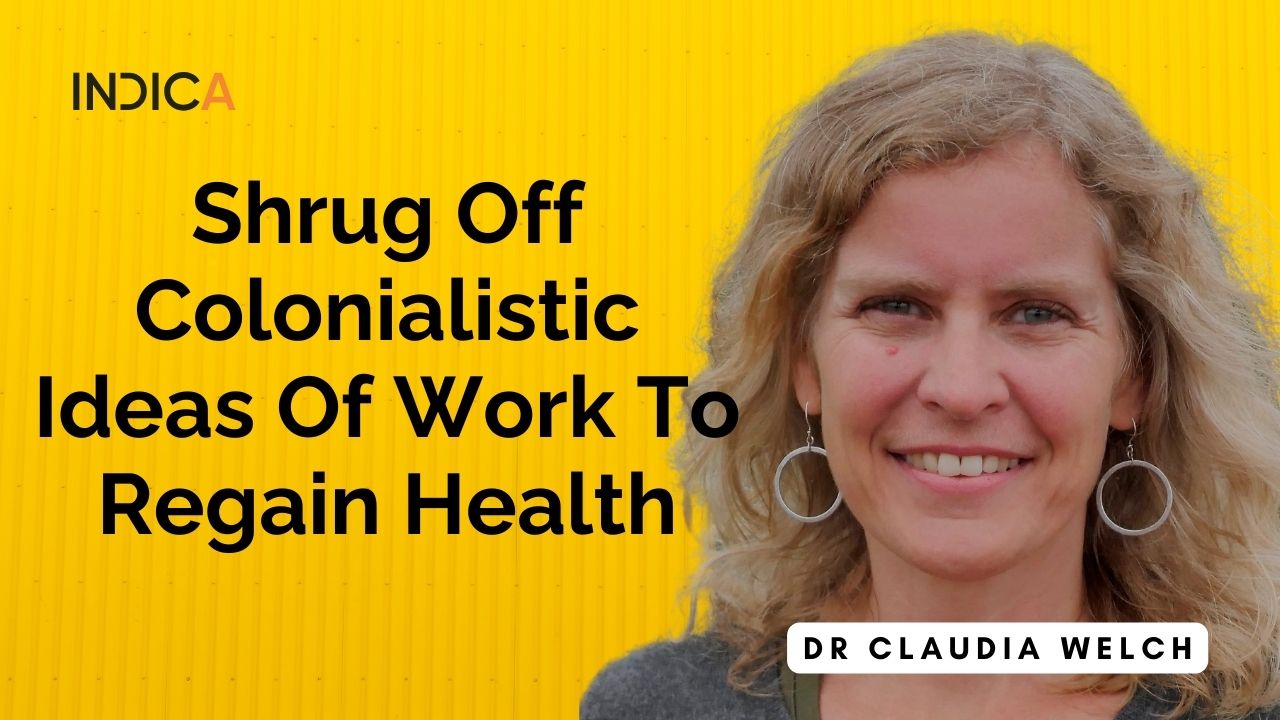Ayurveda this year had a red cape tied around it. It is safe to say that the pandemic bought to light the significance of incorporating Ayurveda into daily lifestyle. Intense research into potential ayurvedic drugs took place in most laboratories and hospitals across the country and the globe. Research into the development of nano-fibre respiratory masks with herbs was conducted at the University of Portsmouth in collaboration with Bharathiar University. (https://www.softpowermag.com/plant-extracts-for-masks-and-oral-medicines-have-roots-in-vedic-botany/).
When medical experts declared that the only possible cure to COVID19 until the vaccine was developed was to boost the immune system, Ayurveda stepped up and provided a number of ways to do so. Ayurveda’s take on immunity is fascinating- it deals with how a disease can be suppressed, how can the progression of a disease be resisted and how the body can resist the recurrence of the disease. (https://www.softpowermag.com/will-the-concept-of-immunity-give-rise-to-a-vaccine/)
Ayurveda has been a very well documented healthcare system that has been in existence for over many centuries. There are more than a thousand texts that deal with different principles of Ayurveda. The Vedas also give insights into the usage of many herbs and medicines. Earlier this year, a study was conducted into the usage of honey for the treatment of wounds. Speaking to CSP, Dr Ramakrishna, VC of S-VYASA University revealed that this specific study has been worked on years ago. He gave us insights from the Charaka and Sushrutha Samhita as well as from the Rig and Atharva Veda. (https://www.softpowermag.com/new-research-points-to-benefits-of-honey-ayurvedas-therapeutic-gift/). This only goes on to show how well researched and systematic this healthcare system was.
Although we saw many opting Ayurveda into their daily lives, there are many who seem reluctant and prefer the modern medicine health care system. This hinders the process of Ayurveda entering mainstream healthcare system. One way to help those understand the efficacy of Ayurveda is through modern medicine terminologies. (https://www.softpowermag.com/ayurveda-can-be-understood-using-the-science-of-epigenetics/).
Through the year, CSP dealt with various experts in the field of Ayurveda from practitioners, professors, students, researchers, patients, policy makers, and diplomats who all spoke about their vision for Ayurveda. A month-long conference dedicated to Ayurveda was conducted recently involving the above mentioned authorities. The main focus was to delve into individual aspects of Ayurveda such as the global presence of Ayurveda, how Ayurveda is perceived in the present day, the future of Ayurveda education, Ayurveda literature, the connect between Ayurveda and Vedanta and many more.
Dr Sandris Petronis, an orthopaedic from Latvia, spoke of how the Ayurvedic perspective of observing the patient as a whole and not merely tending to the particular ailment can be taken into consideration by medical students or practitioners while tending to a patient. He believes that integrating modern medicine with Ayurveda, Siddha or homeopathy will definitely improve the quality of life.
Earlier this year, TATA medical Center for Cancer Care in Mumbai were looking at the integration of Yoga and Ayurveda with the existing allopathic standard of care treatment in ovarian cancer patients. (https://www.softpowermag.com/ayurveda-clinical-trials-on-at-tata-medical-centre-for-cancer-care/). Dr Rama Jayasundar in a web-series on Ayurveda highlighted the need for the two healthcare systems to come together. She stated how Ayurveda has a good emergency care system citing how injured soldiers were able to engage in war the very next day.
According to Dr Ramkumar, Director of Arya Vaidya Pharmacy, the integration of the two systems of healthcare must involve education, research, practice, cultivation of medicinal herbs. Doing so, will bring Ayurveda into the mainstream healthcare system.
Ayushman 2020 brought people from every part of the globe which shows the extent to which Ayurveda has travelled and accepted by other nationalities. Countries in Europe such as Germany, Switzerland and Austria have become the nerve centres of Ayurveda. The European Academy of Ayurveda in Bierstein in Germany has one of the largest Panchakarma hospitals. It is said to offer courses not only in Ayurveda but also in Yoga, ayurvedic psychology and nutritional consultancies. (https://www.softpowermag.com/ayurveda-strategically-poised-to-create-global-wellness/).
Canada saw Yoga first shortly followed by Ayurveda. The High Commissioner to Canada, Shri Ajay Bisaria said that one in five Canadians practice Yoga. The Ayurvedic Association of Canada established in 2017 became a platform for all those who are dedicated to work and promote Ayurveda, along with three other organisations that are deeply involved in the same. However, in Canada, Ayurveda is still not accepted as a healthcare practice unlike other traditional systems such as Homeopathy. Although there is adoption of Ayurveda in Canada due to the extensive research that is backing it, regulatory systems lag behind in the promotion of Ayurveda as a mainstream practice.
The first step to this would be to make changes in the home country. BAMS students, for the first two years study allopathy following which they focus on Ayurveda. However, there is no knowledge about Ayurveda imparted to MBBS students. Dr Jeevan Jose, an Ayurvedic practitioner in Germany stated that the Ministry of AYUSH is partnering with University of Graz in Austria and they have decided to have medical students take up a semester on Ayurveda.
A session on Ayurveda education during Ayushman 2020, Shreyasi, focused on the past, present and the future of Ayurveda education. In the past, before entering into the 5 year course, it was mandatory to have 2 years or Pre-ayurveda course which dealt the study of Sanskrit, English, History.
Vaidya Vinod Kumar, CCIM spoke of the current framework and the changes that were being discussed. (https://www.softpowermag.com/ayurveda-offers-a-big-possibility-in-public-health/).
During the session, Vartamana: Ayurveda Today, Dr Madan Thangavelu, Research Director for the European Ayurveda Association spoke of the impact western education had on Indian education. The focus on health has declined and the entire healthcare system has now been looked upon as a commodity. Dr Thangavelu expressed his insights on how the IITs, IIMs, BHU and AIIMS need to re-structure their medical programme.
Mr Prashanth Singh, Rashtram School of Leadership, emphasised the need to protect the plant diversity and its genetic material from being exploited. He also added the community has to become more vocal and strengthen itself. Ayurveda has had experience dealing with many formulations that are being tested out by modern medicine now. This is one opportunity that Ayurveda must grab on and capitalise on. Research into Ayurveda has to dig deeper than only understanding the gunas, virya and vipaka of a plant.
Ayurveda is a healthcare system that helps one maintain a symbiotic relationship with nature. It prevents disease and promotes overall health. As this year comes to an end, we have gathered heaps of knowledge into this science and on what the Ayurvedic community needs to do to gather wider acceptance. More importantly, the community needs to work towards giving the respect and the place that Ayurveda deserves in the country it was born in.




